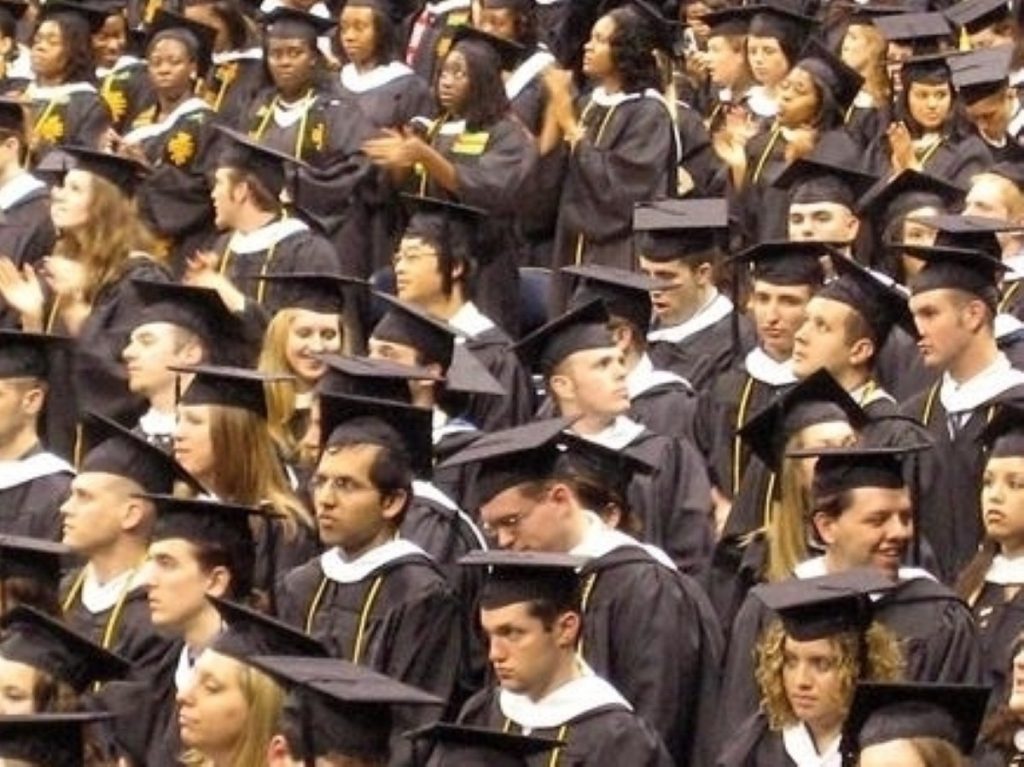£9k tuition fee cap leaves students horrified
Concessions won by Liberal Democrats on university funding are unlikely to placate their angry student vote, as the government increases the tuition fees cap to £9,000.
Higher education minister David Willetts confirmed the increased cap – nearly triple the £3,290 limit currently in place – to the Commons after prime minister’s questions.
Lib Dem MPs have given mixed reactions to the news, but the issues is expected to provoke the largest rebellion yet seen from the coalition’s benches. One MP told politics.co.uk he viewed “huge fee hikes” as unacceptable.


Labour leader Ed Miliband attacked the Lib Dems for their “broken promises” in the Commons, before David Cameron defended the “courageous and difficult decision” taken by his coalition colleagues.
Universities had been expecting the cap to rise to £7,000, as business secretary Vince Cable had initially suggested following the publication of Lord Browne’s review on the issue.
After pressure from concerned Lib Dems those universities imposing a cap of over £6,000 will have to satisfy a number of ‘fair access’ criteria, helping ensure the poorest are not deterred from seeking a degree.
“This progressive package will put universities’ finance on a sustainable footing with extra freedoms and less bureaucracy,” Mr Willetts said.
“But in return there will be greater choice for students with a stronger focus on high quality teaching.”
Students from families with incomes of up to £25,000 will be entitled to a more generous student maintenance grant of £3,250. Parents earning over £42,000 will not be entitled to any grant at all, but families earning up to £60,000 will be able to borrow more through maintenance loans.
A £150 million national scholarships programme is also being set up which will guarantee student benefits such as a free first year or foundation year to the “brightest students from poor backgrounds”, officials said.
Today’s proposals have won over at least some uneasy Liberal Democrat MPs, all of whom signed a pledge to oppose any rises in tuition fees before the general election.
Stephen Williams, the party’s spokesman on the issue before the general election, said he welcomed the plans to introduce “a much fairer system than was left behind by the last government”, adding: “My concern has always been to make sure that students from poorer backgrounds are not put off.”
Mr Willetts replied by acknowledging that coalition talks on the issue had featured “a recognition of the importance of improving access to some of our most prominent universities”.
The huge outpouring of opposition already beginning in student organisations is likely to place huge pressure on some of the party’s backbenchers to rebel against the move, however.
“Fees cannot currently be abolished and perhaps, realistically, they never will be. That is a compromise many in the party have not wanted to make, but we accept we have to,” Greg Mulholland told politics.co.uk.
“Now it is time for Liberal Democrat backbenchers to say that we won’t compromise on our belief that a huge fee hike is not an acceptable way to raise money for universities.”
Yesterday Lib Dem energy secretary Chris Huhne’s speech at the LSE in London was blighted by a huge student protest outside.
National Union of Students president Aaron Porter said: ” “The government have provided no reassurance that requirements on access, employability, quality or the student experience would be any more effective than they are now.
“The only things that students and their families could expect in return for higher fees are higher debts.”
The University and College Union (UCU) claimed graduates earning the national average salary of nearly £32,000 would have to pay an extra 19.3% in tax than their colleagues who had not been to university.
“The message this sends is that in the UK we now penalise aspiration rather than encourage it,” UCU general secretary Sally Hunt said.
“Mums and dads who just want their children to have better opportunities than they did will see this for what it is – a stealth tax on learning and aspiration.”
Labour plan to vote against the move because it opposes the government’s decision to transfer the whole cost of degrees on to students in the form of debt.
Shadow business secretary John Denham said: “The government has produced the worst of all possible worlds.
“Universities will need to charge fees of at least £7,500 just to avoid losing money, so those that can’t will be forced to cut quality and dumb-down. Most students will be paying off debts for 30 years.
“With some universities charging £9,000 more than others, many students will be forced to choose the cheapest course, not the one that is best for them.”
The government will publish a white paper on higher education funding in the winter with further proposals on the longer-term issues raised by the Browne review.












